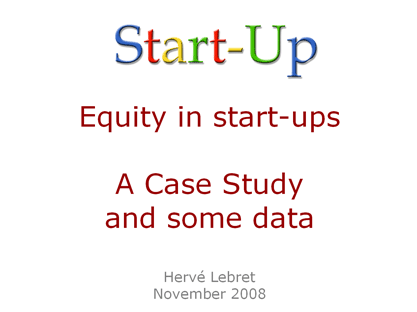Comme suite à des posts plus tôt dans l’année sur l’évolution de l’actionnariat dans des start-ups (Kelkoo, Skype, mysql), voici une analyse plus générique sur le processus du partage des actions. Le document est au format pdf. je l’ai utilisé assez régulièrement depuis 2006 pour des étudiants, des chercheurs et des entrepreneurs et je le crois utile même s’il n’est pas nouveau dans substance. A la fin, le lecteur pourra trouver d’autres exemples réels célèbres et moins célèbres.
Depuis la création où quelques fondateurs se partagent les premières actions jusqu’à la sortie (IPO ou vente), en passant par de possibles tours de financement, les actions seront réparties, partagées entre fondateurs, employés et investisseurs. Il s’agit donc d’une des décisions les plus importantes pour une start-up et elle doit être gérée avec une très grande attention.


